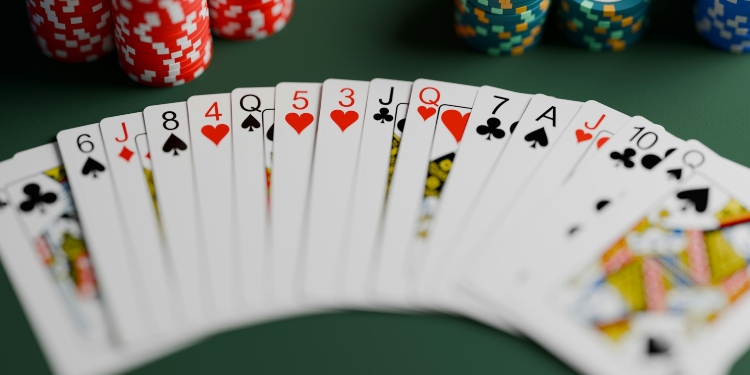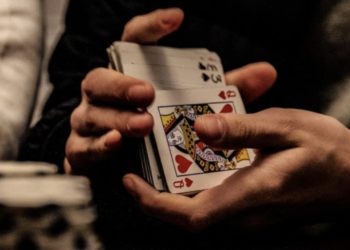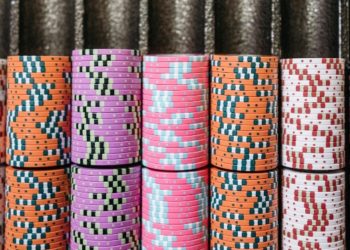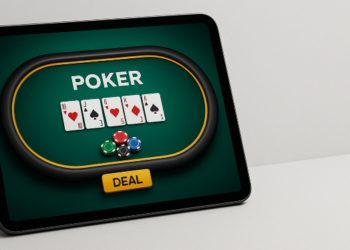As games of skill and chance, card games offer players an entertaining challenge with opportunities to test their strategic abilities against the odds. For many card enthusiasts and gamers, there is an innate curiosity about the mathematical probabilities governing the games they play. Gaining insight into the numbers behind the deck at 1Red can enhance one’s gameplay and provide a mental edge against opponents.
Poker Odds
As one of the most widely played card games today, poker relies heavily on probabilities and numeric odds. Whether playing draw, stud, or community card games, experienced poker players learn to calculate pot odds, outs and hand probabilities on the fly to gain an advantage. Some key probabilities include:
- Chances of being dealt a specific starting hand – for example, the odds of being dealt pocket aces (A-A) pre-flop in Texas Hold’em are 220:1 against
- Odds of improving a hand – determining outs based on the number of cards not held that could improve one’s hand
- Pot odds – comparing the size of the current pot to the bet required to call and determining if it is profitable in the long run to continue playing for larger pots when one’s odds of winning are low in the short run
Mastering these numbers is key to maximizing wins and minimizing losses in poker over time. Published poker books often contain tables outlining hand probabilities in major poker variants.
Blackjack House Edge
Unlike poker where players compete against each other, blackjack pits players against the house. Casual blackjack players may simply try to reach 21 without going over, but serious players know that long term success requires mitigating the inherent house edge as much as possible.
Blackjack probabilities center around the dealer advantage inherent in the game rules. This mathematical house edge usually ranges between 0.5% to 2% depending on factors like:
- Number of decks used
- Dealer hitting or standing on soft 17
- Double down, split and surrender rules
By learning the blackjack odds for the rules of a specific game, players gain insight into the best playing strategy needed to trim the house edge down. For example, basic blackjack strategy guides advise when players should hit, stand, double down, split pairs, or take insurance based on statistical probabilities for each in-game scenario.
Bridge Probabilities
The trick-taking card game bridge relies heavily on logic and probabilities. Serious players utilize math, memorization and mental calculations to determine bridge odds and the most strategic bids to make. Some key probabilities include:
- Chances of being dealt a particular hand based on straightforward combinatorics
- Probabilities of an opponent holding specific high cards after passes or bids
- Percentages for finding a fit in a suit with partner
By understanding the mathematical probabilities involved, bridge players can make informed bids, avoid risky contracts and maximize points. Published bridge guides provide detailed percentage tables on probabilities for holding combinations like suits, honors, shortages and more after rounds of bidding.
Using Math to Your Advantage
While delving into the math behind card games may seem daunting to some, understanding the numbers can give players a proven strategic advantage. Simply realizing that the odds are stacked against you is not enough – you must learn how to make the right moves at the right times to overcome inherent house edges. Memorizing key probabilities will allow you to calculate pot odds on the fly during poker, properly respond to the dealers up card in blackjack, confidently make bids based on the likelihood of finding trump suits in bridge and more.
Leveraging math and statistics separates strategic card players from casual gamers over the long run. Whether playing for fun or profit, players should recognize that card gaming is a battle of numbers as much as skill. While chance always plays a role, those who make bets, raises, hits, stands, bids and calls based on accurate math gain a calculated edge to consistently beat the odds.
While this covers some of the basics, entire books have been written covering the mathematical probabilities involved for specific card games. From expected value calculations to combinatorics to complex conditional probability questions, card game math spans many fields. While intimidating at first, a little study goes a long way in improving gameplay. Our brains can only intuitively estimate odds and chances so far before mathematics clarifies the true probabilities at play with a deck of cards.
David Prior
David Prior is the editor of Today News, responsible for the overall editorial strategy. He is an NCTJ-qualified journalist with over 20 years’ experience, and is also editor of the award-winning hyperlocal news title Altrincham Today. His LinkedIn profile is here.


![7 Best POS Software in the UK [2026 Edition]](https://todaynews.co.uk/wp-content/uploads/2026/02/7-Best-POS-Software-in-the-UK-2026-Edition-360x180.png)










































































